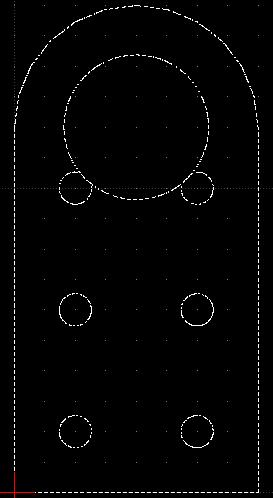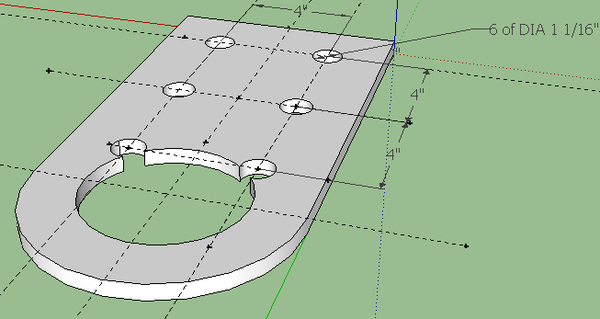Stock Pivot Plate: Difference between revisions
No edit summary |
No edit summary |
||
| Line 12: | Line 12: | ||
*[[File:Stock_Bonding_Plate_8_inches_x_16_inches.skp]] | *[[File:Stock_Bonding_Plate_8_inches_x_16_inches.skp]] | ||
*[[File:Stock_Spacer_Plate_8_inches_x_8_inches.skp]] | *[[File:Stock_Spacer_Plate_8_inches_x_8_inches.skp]] | ||
==Note== | |||
<span style="color:red">''''Needs the Stock Pivot Plate Sketchup with 3" hole, not 4.75" hole. </span> | |||
=Notes= | =Notes= | ||
Revision as of 17:49, 4 July 2013
DXF file - File:Stockpivot.dxf
Note: the correct large hole diameter in the above is 4.75", which gives 1/8" room around the DOM for effective welding.
Note: the above is used to generate a CAM file for CNC Torch Table cutting and Laser Cutter modeling - for the pivot plate. In practice, a 4.5" OD DOM with 3" ID is welded inside the 4.75"-4.875" hole (Mickey Mouse hole) to generate a pivot plate for a 3" shaft. To generate a CAM file for 3D printing, one must consider the 3" tubing and print out a 3" hole, not a 4.75"-4.875" hole. 4.75" is recommended as a hole for CNC cutting (leaves exactly 1/8" space around DOM for welding) - and a 4.875" hole is recommended for manual cutting to address inaccuracies.
- File:Stock Pivot Plate.skp
- File:Stock Bonding Plate 8 inches x 16 inches.skp
- File:Stock Spacer Plate 8 inches x 8 inches.skp
Note
'Needs the Stock Pivot Plate Sketchup with 3" hole, not 4.75" hole.
Notes
This is an official file release with dimensions. Current as of May 17, 2013. Newer versions will be uploaded here.
We can then print these out according to the Ultimaker Post on Using Sketchup for 3D Printing.

